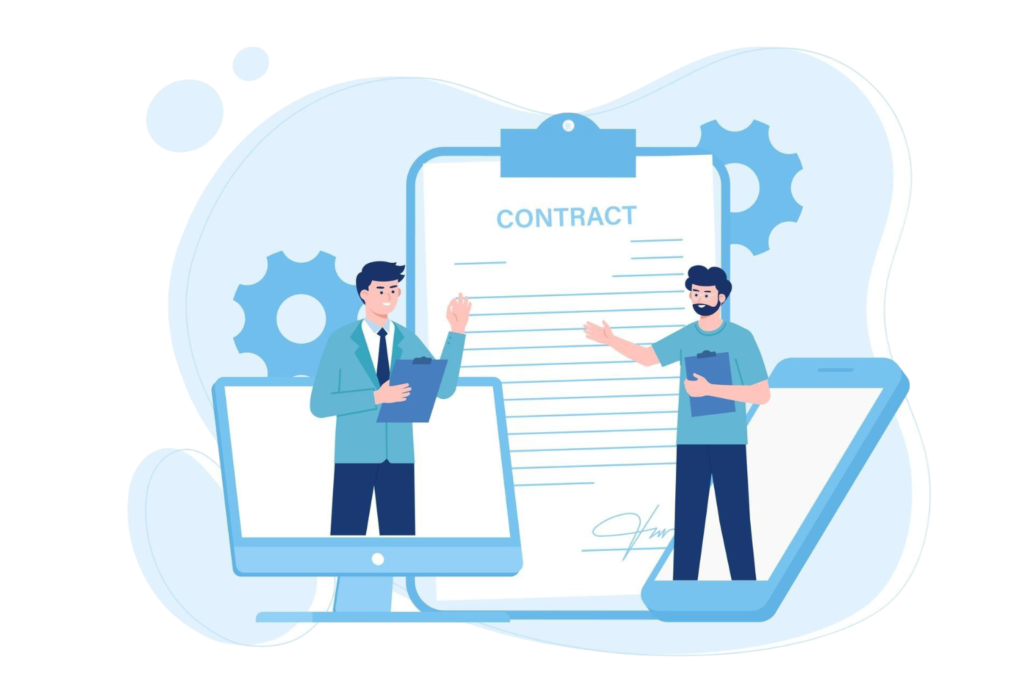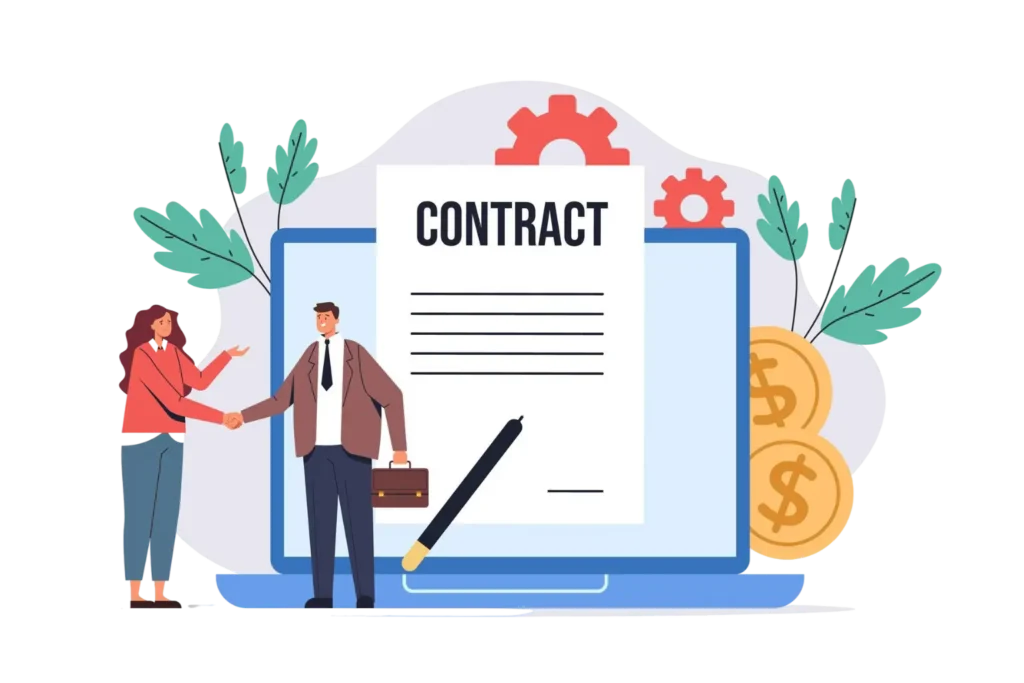Contract Management Platform: What It Is & Why Your Business Needs a Contract Lifecycle Management Platform
Discover how a contract management platform (or contract lifecycle management platform) works, who uses it, key features, benefits, best practices and how to deploy – plus a comparison of the top ten platforms in 2025.

What Is Contract Management Platform?
The majority of companies think that revenue is the business driver. The fact is that it is their contracts that quietly run the operation.
And it is exactly in the management of those contracts that a contract management platform comes in.
A contract management platform is a solution that is designed to handle agreements during the life cycle of the contract, both in its creation and renewal.
This article will discuss why companies require such a platform, features, benefits and how to implement it.
Importance of Contract Management Platform?
A report by Deloitte has says that businesses are losing almost 8.6% of their contract value due to ineffective contract management practices. This is why a contract management platform is crucial in any growing company.
- Contracts Form the Foundation of all Relationships
Contracts define the way businesses deal with clients, suppliers and employees. They specify what should be provided, when it should be provided and at what price. When such agreements are properly handled, they create a long term trust and guard both parties against miscommunication. - Manual Work Slows Teams Down
A lot of companies continue to handle contracts via emails, shared folders or printed documents. This manual system is very likely to create delays, repetition, and mix up of which version is final. In the long run, these inefficiencies accumulate and do not allow teams to work on more valuable work. - Late Deadlines Cost Business
Businesses risk losing revenue or paying additional fees when the contract renewal process or expiry dates are missed. A contract management platform will remind you about important dates, remind you, and remind you to act in time. - Increasing Volume of Agreements
The number of contracts increases with the growth of organisations. It is almost impossible to process hundreds or thousands of agreements manually. A digital contract management platform grows as your business grows, and everything is in order even when the complexity grows. - Poor Visibility is a Risk
In the absence of a contract dashboard, decision-makers can fail to see important terms, renewal terms, or compliance terms. Reporting and centralised dashboards enable businesses to see the big picture and make decisions. More visibility results in quicker decisions and less in the future.
Get complete contract visibility in a single dashboard Book a Demo
- Teamwork is no Longer Easy
Contracts usually deal with several departments legal, finance, procurement, and sales. Communication fails when the teams are working individually. A contract management platform enables all the parties to make contributions, go through and approve at a single point minimizing delays and misunderstandings.
- Technology Provides Control and Confidence.
A contract management platform automates and reminds and stores the complex processes. It transforms contracts into business assets instead of administration and assists companies to minimize risk and make decisions easily and conveniently.
Briefly, a contract management platform turns contracts into documents scattered into strategic assets.
How Does Contract Lifecycle Management Platform Works?
A contract lifecycle management platform works by organizing and automating each step of a contract’s journey from start to finish.
1. Contract Creation
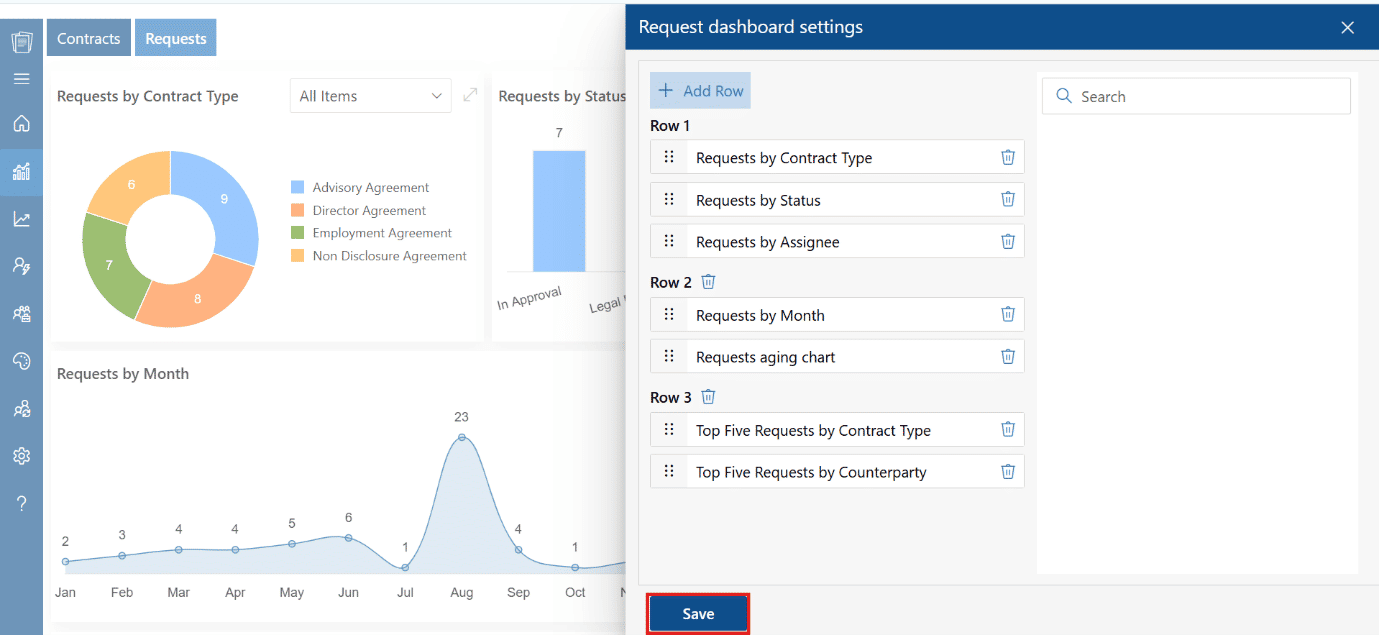
The contract journey is initiated when a business unit, procurement team or legal department creates a new contract.
Contract management platform simplifies the creation process by having structured intake forms that direct the user to fill all the required details like the type of contract, stakeholders, and requirements.
This systematic method assists the teams to start new contracts with precision and accuracy without any information being missed or followed up on several occasions.
Also Reading: Best Contract Creation Software for Businesses
2. Approvals & Routing
When the draft is prepared, it has to go through several internal approvals, which may be legal, finance, operations and management teams.
This can be simplified through a contract management platform, which has multi-level workflows, where each document is handled in the right approval route.
In-built routing rules and automatic reminders eliminate problems and allow one to easily view where a contract is pending action.
As a result, the contract approval process are shorter, more transparent, and easier to manage across departments.
3. Negotiation
At the negotiation stage, several parties consider and amend the terms of the contract to ensure that their interests are safeguarded without being unfair.
The process is transparent in a contract management platform, which automatically tracks all redlines, comments, and versions.
Rather than having to carry several copies of documents, teams can work in real time and suggest alternative clauses, as well as keep a full version history.
A smooth contract negotiation workflow saves time, minimizes confusion and enables the two parties to make mutually beneficial agreements in a shorter period.
Negotiate faster by collaborating with counterparties in real time – Book a Demo
4. Execution
Upon approvals, the contract is transferred to the execution phase, whereby signatures bind the contract.
Many of the modern contract lifecycle management platform are built in such a way that they combine electronic signature tools and enable parties to sign safely wherever they are.
This not only improves the contract execution process but also provides a clear record of completion, reducing paperwork and manual errors.
5. Compliance Management & Obligation
After executing a contract, it is important to keep a record of the contractual obligations, deliverables and renewal dates.
A contract management platform tracks the main milestones and compliance needs, notifying about the necessity of action.
This proactive monitoring assists teams to remain on top of the deadlines, supplier performance, and fulfill legal and financial obligations.
Transforming inactive documents into data to be acted on will enable business to handle responsibilities better and prevent expensive breaches.
6. Modification & Renewal
Contracts are usually modified, extended, or renewed over time.
A contract lifecycle management solution makes it easier to update such contracts by keeping track of the complete version history and audit trail.
Previous agreements can be easily reviewed, changes are clearly identified by the teams, and contracts are automatically renewed before deadlines.
This level of organization ensures that no renewal opportunity or compliance update is missed.
7. Repository & Analytics
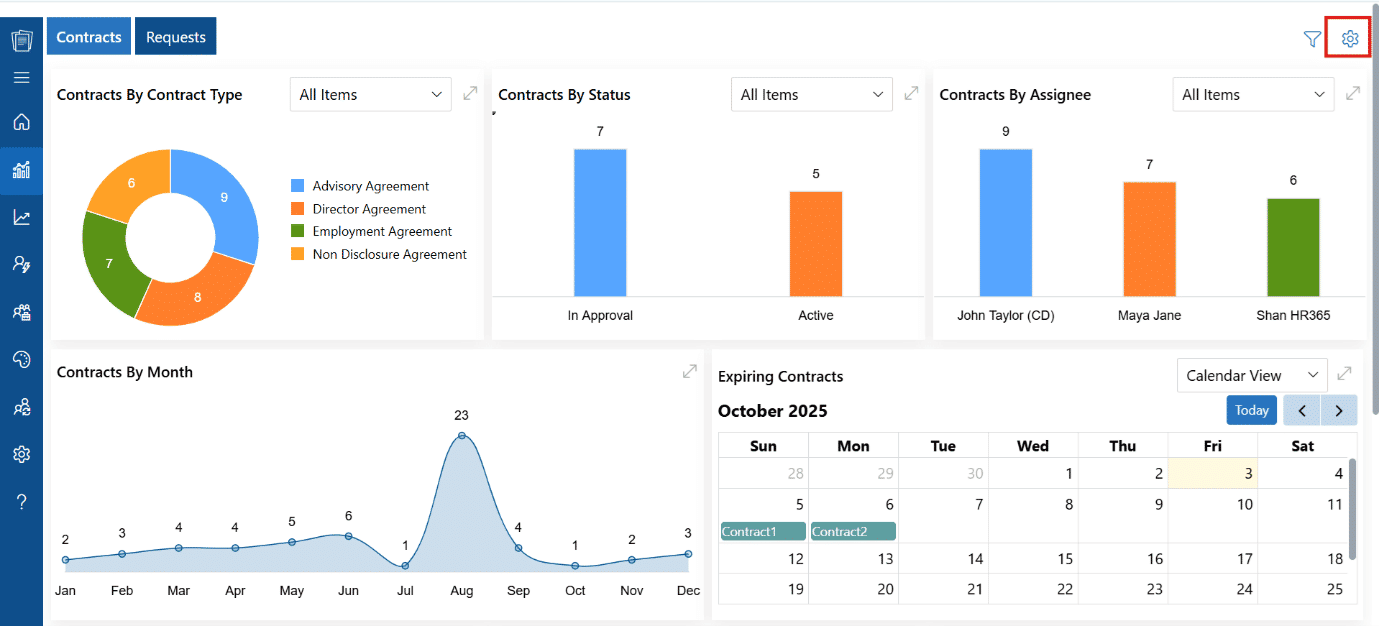
All new and old contracts are securely stored in a centralized digital repository.
The right information can be accessed within seconds, as users can search by contract type, date, vendor, or clause.
In addition to storage, the platform includes contract analytics and dashboards that provide insights into contract cycle times, approval challenges, and risk exposure.
These data-driven insights help businesses make better decisions, optimize processes, and enhance governance.
Contract Management Platforms in the Industry
The contract lifecycle management platform is not limited to a single industry since it serves a large number of industries that are contract-based. The following are some of the major industries that will be advantaged by the adoption of a contract lifecycle management platform.
1. Legal Firms
Corporate legal departments and law firms deal with extensive amounts of contracts daily in client contracts, vendor contracts, and regulatory contracts.
A contract management software helps legal departments with the drafting of contracts based on pre-approved templates, maintaining libraries of clauses and tracking version changes during the negotiation process.
It also has a good audit trail and approval records that keep teams at par with the law and industry standards.
2. Healthcare
Healthcare organisations are dealing with several contracts simultaneously with suppliers, insurance providers and service partners.
A contract management platform is a simplified version of this complicated network of agreements as it stores all the documents in a secure place.
It assists healthcare facilities and hospitals to ensure they are in line with the healthcare regulations and to protect sensitive patient information.
3. Manufacturing
Manufacturing firms have a broad network of suppliers, distributors, and logistic partners and each relationship is based on well-defined and well-organized agreements.
A manufacturing contract management assists teams to make, store and monitor supplier agreements, product warranties and maintenance schedules within a single safe system.
It also offers real time insights into the performance of vendors, the trend of prices and the major risks that are associated with contracts and which can impact the stability of the supply chain and operational planning.
4. Supply Chain
Contracts in the supply chain management are the basis of supplier, logistics and distribution activities.
A contract lifecycle management platform assists in monitoring all supply chain contracts between sourcing and delivery to provide businesses with comprehensive insight into terms, timeframes, and commitments.
This transparency assists in avoiding delays in supplies, controlling compliance of the vendors and minimizing operational risks.
Through informed decision-making based on data and reporting, teams are able to make improved decisions regarding relationships with vendors and cost-efficiency.
5. Oil and Gas
Managing oil and gas contracts are usually characterized by high value projects, long durations and various international stakeholders. The process of handling these agreements may be complicated and time consuming.
An oil and gas contract management platform consolidates all the contracts be it exploration, equipment supply or maintenance to a single, secure and central system.
It assists in document reviews and renewals; the platform assists the firms to save time and be fully accountable in all projects.
6. Utilities Industry
Utility providers handle a broad scope of contracts in energy, water and infrastructure services.
A utility contract management aids in automating the approval process, renewals, and storing documents in a single secure system.
A contract management platform also maintains all the records in a safe and easily accessible place where the teams can access the documents promptly when required.
Having a clearer understanding of obligations and vendor performance, utilities will be able to enhance reliability of services and transparency of operations.
7. Insurance
Thousands of contracts are processed by insurance organisations in terms of policies, vendors, agents and clients.
A contract lifecycle management system eases this process by giving a centralized system to write, approve, and store all agreements.
It also helps track policy renewals, compliance deadlines, and client obligations, ensuring accuracy and efficiency across all operations.
Key Features in a Contract Management Platform
We have discussed the significance and different industries. The contract management platform has a number of feature, and the following are some of the feature that should be considered.
1. AI-Powered System
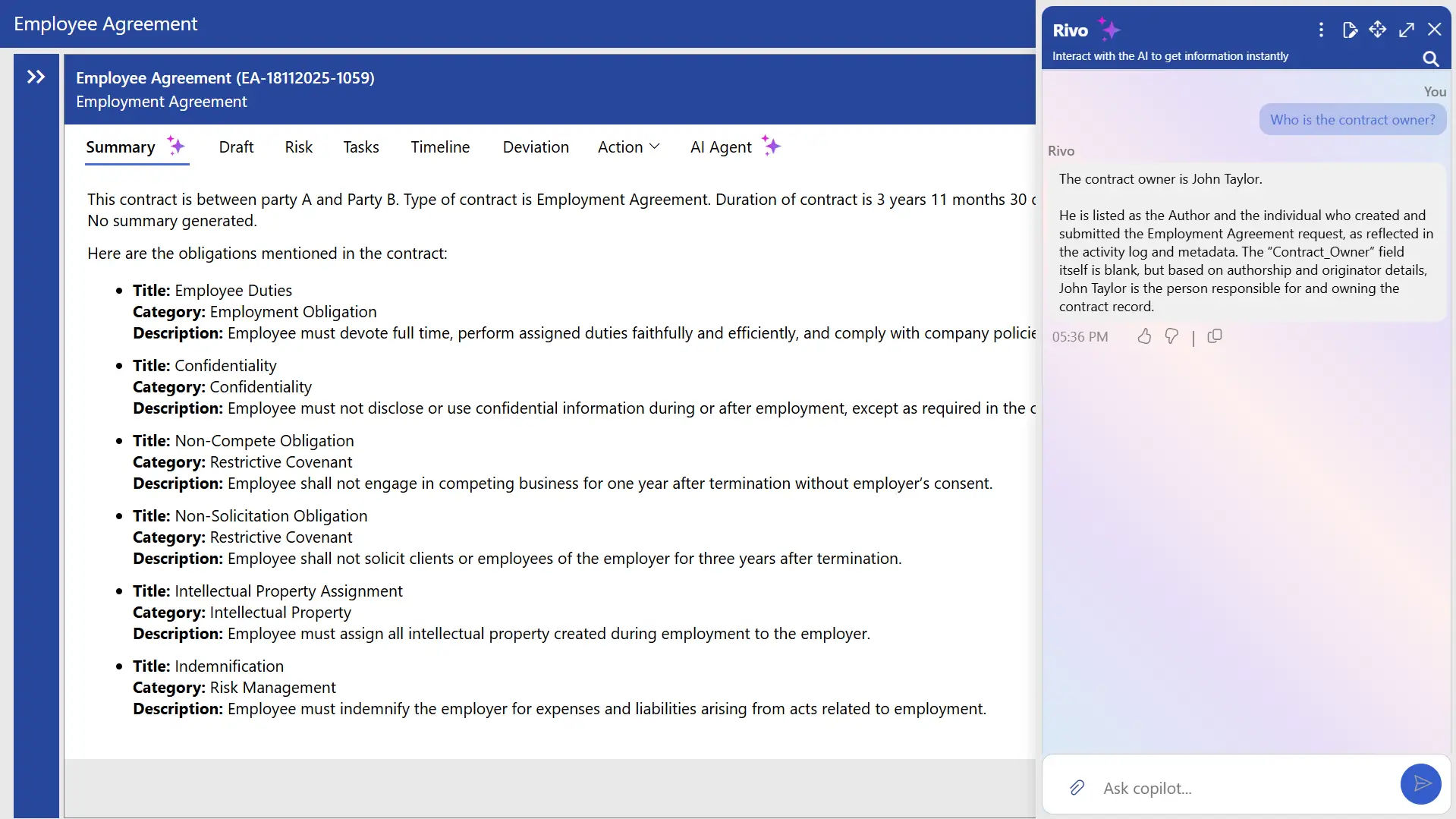
Deloitte found in a research that 74% of organisations are investing in AI and generative AI technologies.
This is an indication that companies are shifting to smart digital solutions that enhance efficiency and decision-making.
By integrating AI into a contract management platform, the process of contract creation, review, and tracking is changed.
The AI based contract management platform automatically summarises the contracts, proposes improved clauses, and determines possible risks and obligations.
2. Automation
According to the Juro State of In-house Survey, 67% of in-house lawyers say they are “drowning in low-value work.”
This highlights the growing need for contract automation, which helps legal teams reduce repetitive tasks and focus on high-value, strategic activities.
Agreements can be created, approved and managed by business users in a shorter time with less reliance on manual input.
It assists teams to save time, enhance accuracy and concentrate more on strategic activities.
3. Contract Compliance
Compliance tools are used to monitor deliverables, obligations, and agreed terms in all contracts.
The contract management platform ensures that correct versions are being utilized and approved language is being upheld.
All the actions of the contracts are captured in the audit trails and records become easier to check when required.
By having a clearer understanding of the obligations, teams will be able to remain consistent with the legal and operational requirements.
4. Contract Drafting
It has an in-built drafting interface that enables teams to make contracts based on pre-approved templates and libraries of clauses.
It can be easily edited and reviewed by integrating with popular word processors, including Microsoft Word.
This formalized method accelerates the process of contract development and ensures that content is in line with company policy.
5. Clause Library
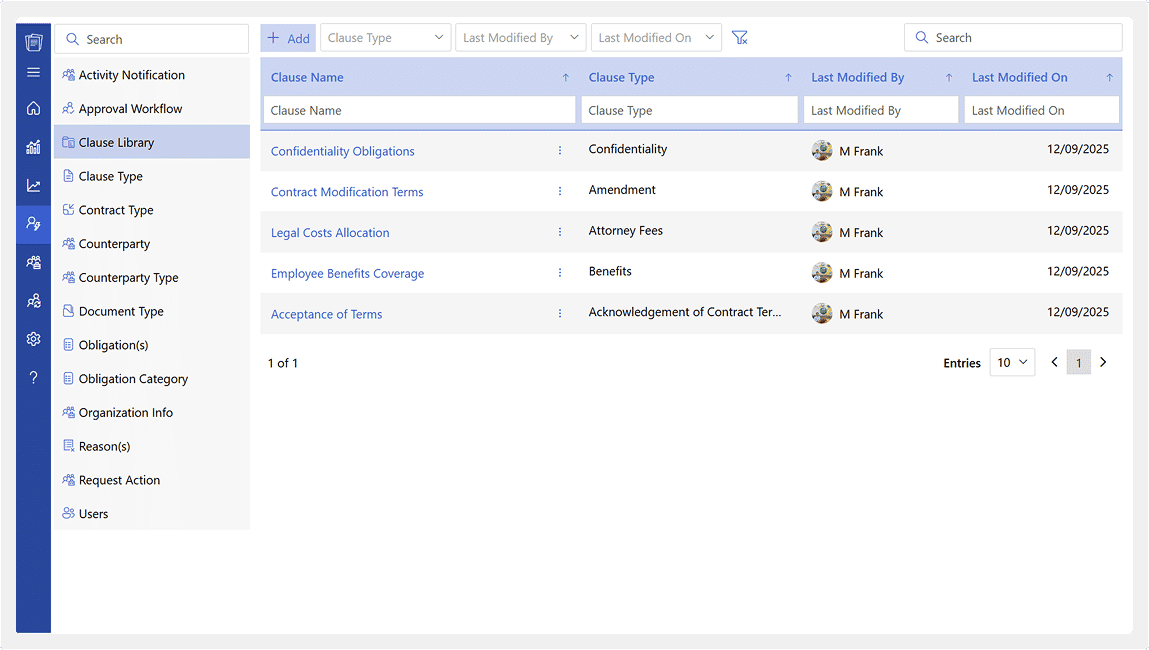
Approved language, alternative options and version history are stored in a centralised clause library.
Teams are able to locate the appropriate clauses and implement them in a short period of time without necessarily commencing at the beginning.
Data on usage can be used to determine the most effective and most used clauses. Such standardisation of language is beneficial in interdepartmental and inter-regional standardisation.
6. Agreement Routing
The contract management platform automatically directs agreements to the appropriate stakeholders according to the value of the contract, geography or type.
It uses embedded business logic to order reviews, send notifications, and manage escalations.
Role-based permissions assist in determining the individuals who can review or approve at any given stage.
This structured routing system keeps all the participants updated and ensures transparency of processes.
7. Redlining Documents
The contract redlining software enables users to monitor edits, compare document versions and see suggestions.
All the changes are documented and can be viewed without any loss of the original information. History is kept in order to maintain legal accuracy and accountability.
Such transparency aids teams in having a clear record of all the negotiation rounds.
8. Multi-Level Approvals
Contracts usually require the contribution of various teams including legal, finance, operations, or management.
The contract lifecycle management platform allows parallel and sequential approval frameworks depending on the company policy.
Role-based access will make sure that the correct individuals read and approve certain sections. Escalation rules may be used in case of delays in approvals, and processes are kept on track.
9. Negotiation
The negotiation workspace enables the internal teams as well as the counterparties to review, comment and revise documents.
Users are able to compare redlined versions, accept or reject suggestions and monitor changes effectively.
Every negotiation process is recorded to have a comprehensive record of negotiations.
This eases the process of coordination and reduces the duration of time required to conclude agreements.
10. Contract Modification
Existing contracts may be easily amended, renewed or extended by teams with full version control.
All changes are connected to the initial agreement to enhance traceability. The metadata is automatically updated as the value, dates, or terms change.
This ensures that all records are correct and less time is wasted in updating the documents.
11. Electronic Signature
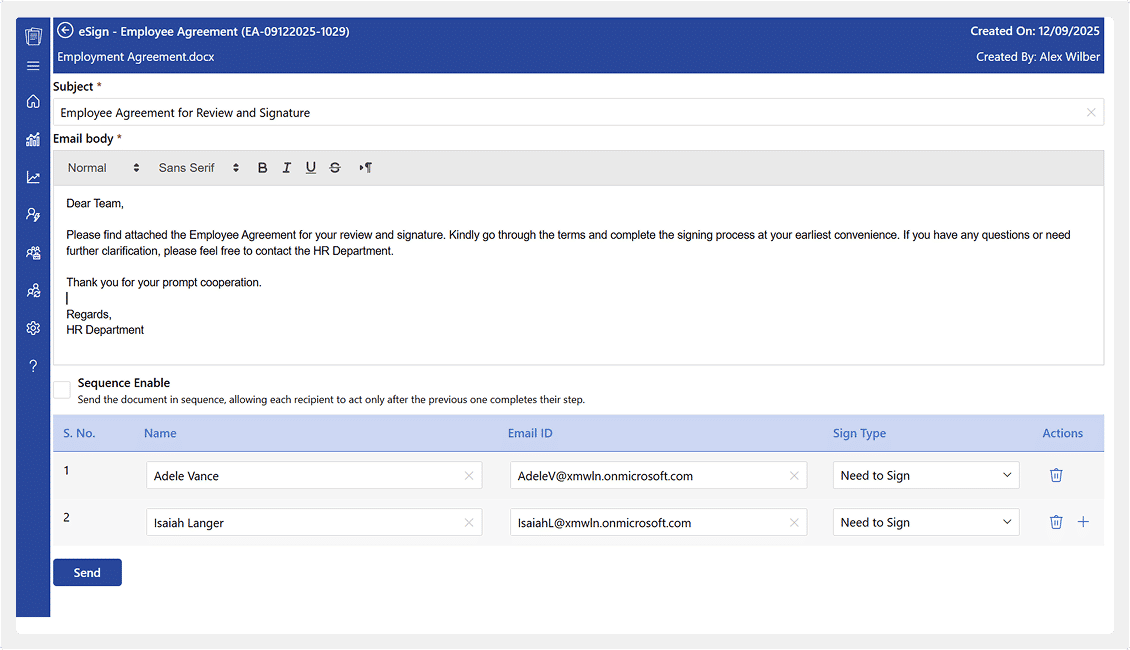
E-signature tools have been embraced by approximately 70-80% of organisations in the U.S. as a result of digital transformation.
Contracts can be signed immediately without printing or scanning because of the incorporation of e-signature technology.
Signers get safe access to documents across all devices, which enhances turnaround time.
This online procedure accelerates the process and eases the process of signing key agreements.
12. Version Control
All drafts, reviews, and final versions are monitored and stored in a central repository through contract version control.
Users can compare versions, view revision history, and retrieve older copies anytime using the contract management platform.
Accountability is strengthened as audit trails record who made each change. This level of tracking ensures that documentation remains accurate and compliant throughout the contract lifecycle.
Benefits of a Contract Management Platform
The implementation of a contract lifecycle management platform has numerous advantages. Here are some of the benefits to consider.
Collaborative Workflow
The contract management platform encourages the smooth collaboration and total transparency during the contract process. It unites drafters, reviewers, approvers, business teams and external partners into a common workspace.
Anyone is able to collaborate on the same contract, comment and see the changes in real time. This will remove confusion, minimize back and forward emails, and make approvals more coordinated and quicker.
Consequently, there is better communication, less time wastage, and contracts are processed easily.

Contract Risk Management
A PwC survey in 2025 found that risk visibility in companies investing in contract management technology increased by 64%.
Having an inbuilt contract risk management, organizations can find it simple to identify risky terms, track essential commitments, and proactively manage the possible expiration or renewal risks.
Early intervention to avoid compliance problems can be achieved through automated alerts and AI-driven insights.

Centralized Platform
The contract management platform is used to keep all the contracts in a centralized digital repository as opposed to having them scattered across emails, shared drives, or local folders.
All contracts are well structured, searchable and can be accessed (depending on permissions) at a single secure location.
This removes files that have been lost, enhances accessibility, and provides teams with one source of truth.

Security
High-end contract management platform like CLM 365 are developed with high-end security facilities to safeguard confidential data.
These are access controls, encryption (at rest and in transit), audit trails and role-based permissions.
The system also complies with the best security standards including ISO 27001 and SOC 2, which are regulatory. When these protections are in place, your contracts will be secured, tamper-proof, and only accessible to authorized users.

Reduced Time to Value
Organizations are able to write and review contracts much quicker with ready-to-use templates, libraries of clauses, and workflow automation.
This reduces the duration between the negotiation and execution, enabling businesses to seal deals faster and begin to add value earlier.
The expedited approvals also imply expedited revenue collection and improved client satisfaction. In general, the automation of contracts assists companies in working faster and more efficiently.

Improved Contract Performance Visibility
By using contract analytics and interactive dashboards, teams can have full visibility of contract performance. Users are able to see the approval times, the clauses that result in faster deals, renewal pipelines, and the contract value by business unit.
Those real insights assist the management to make strong decisions, enhance contract strategies and identify areas of improvement.
This openness enhances accountability and leads to constant development.

Cost Reduction and Operation Efficiency.
Organizations save time and money by automating repetitive tasks and minimizing manual work. The site assists in avoiding lost renewals, duplicate contracts, and penalties.
It minimizes the manual processing and rework, which results in decreased administrative expenses. Teams will be able to do more strategic work that generates revenue with faster approvals and greater visibility.
All in all, it provides a more efficient, cost-effective, and high performing contract management process.

Best Practices to Adhere to During Contract Management
Although implementing a contract management platform is a worthwhile thing, it is also important to organize the way you handle contracts. These are the best practices to use during contract management.
1. Use AI and Automated Systems
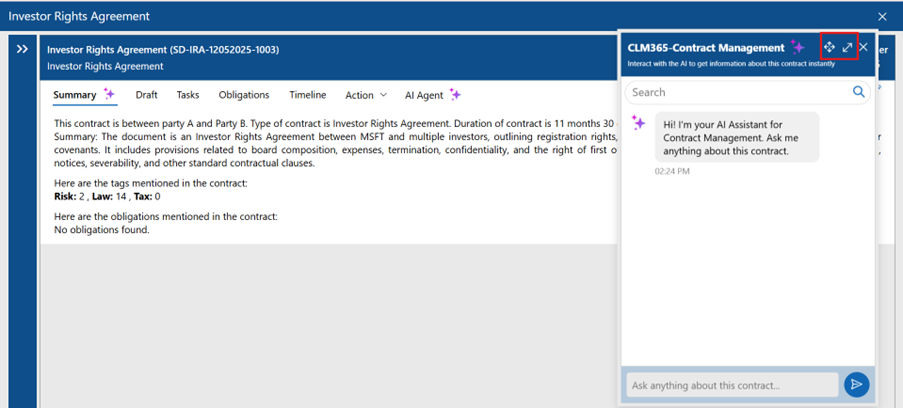
AI-based applications make contract creation, reviewing, analysing contracts, recognizing patterns, risks, and key terms. Automation assists in minimizing the number of people involved in manual work, accelerating the approval process, and ensuring accuracy at all levels.
- Use AI to identify non-standard clauses and outline possible risks.
- Automate the routine work processes like approvals, renewals, and reminders.
- Make quicker and more informed decisions on contracts with the help of AI.
2. Standardize and Map the Whole Process
The mapping of all the stages of the contract lifecycle is useful in establishing a clear structure and uniform process. Standardization helps to make sure that the teams operate in accordance with the specific steps, which enhances visibility and minimizes delays.
- Record the entire process drafting to approval and renewal.
- Determine the challenges and establish standard turnaround time per stage.
- Apply process templates which will guide the users through the consistent execution.
3. Take Advantage of Standardized Templates
Pre-approved templates also save drafting time as well as compliance risks. Contract management platform also makes sure that all contracts are pursued using approved legal and business languages.
- Use templates of typical types of contracts like NDAs, MSAs and vendor agreements.
- Leverage a library of approved clauses to make fast edits.
- Periodically revise templates depending on regulatory or business modifications.
4. Monitor Contracts
Constantly checking will keep you informed about renewals, obligations, and performance measures. The teams can be proactive instead of reactive by monitoring important dates and terms.
- Establish automatic reminders on renewals, expirations and milestones.
- Periodically review contract data to determine performance and risk exposure.
- Monitor KPIs such as cycle time, value, and status of contract using dashboards.
5. Role and Accountability are Clearly Defined
With the clear responsibilities, tasks that are associated with the contract proceed at a faster pace and do not overlap. Clear ownership holds responsibility in legal, finance and operations teams.
- Assign department or type of contract owners.
- Enforce control and compliance by setting role-based access.
- Monitor user activity to have a clear audit trail.
6. Co-ordinate Among Stakeholders
Effective coordination ensures that all parties are on track throughout the negotiation, review and implementation process. Contracts move forward without unwarranted delays when all the stakeholders communicate effectively.
- Collaboration tools can be used to distribute updates and receive feedback in real time.
- Legal, finance and management team schedule review checkpoints.
- Keep a record of communication to document decisions and changes.
7. Emphasize on Knowledge Sharing and Continuous Training
A trained team will be able to adjust more quickly to contract management platform, regulations, and standards of contract management. Frequent exchange of knowledge creates a culture of betterment and less dependence on individuals.
- Conduct quarterly workshops to inform teams of policy or process changes.
- Promote legal, procurement and operations cross-functional learning.
- Encourage knowledge-sharing sessions to discuss best practices
These practices assist in maintaining the contract management platform to provide continuous value and to make the processes involved in the contract effective, controlled, and business oriented.
How CLM 365 Helps Managing Agreements Efficiently
CLM 365 is designed to be based on the Microsoft ecosystem, which provides an integration with MS Teams, Outlook, SharePoint, MS Word and MS Copilot. The platform enables legal teams to handle contracts with its AI-driven functionalities and automation features.
Together with security featuring enterprise-level and user-friendly interface, CLM 365 enables teams to negotiate and manage agreements with certainty and effectiveness.
In the case of organisations that are already using Microsoft tools (Office 365, SharePoint, Teams), CLM 365 is a strong solution to take the management of contracts to a new level.
CLM 365: How to Implement It in Your Workflow
Note: We’ve outlined a few essential steps to help you get started with the implementation. For a detailed, step-by-step guide, please refer to our knowledge base.
- Assess your existing contract lifecycle to pinpoint bottlenecks and areas for improvement.
- Take stock of the current tools and systems used for drafting, approvals, and document management.
- Enable CLM 365 and link it with your Microsoft 365 account for seamless access.
- Integrate the platform with Outlook, Microsoft Teams, SharePoint, Copilot, and the Word Plugin to streamline daily operations.
- Configure approval workflows, assign user roles, and set up automated notifications for timely actions.
- Provide team training using real-world examples and quick reference materials to boost adoption.
- Continuously monitor progress, evaluate efficiency improvements, and fine-tune your workflows for better results.
Conclusion
Smart businesses today seek faster collaboration, improved compliance, and complete visibility across every agreement.
CLM 365 empowers teams to create, manage, and renew contracts effortlessly boosting productivity and accelerating business outcomes.
Book a 14-day free trial with CLM 365 today.
Frequently Asked Questions
What are the 6 elements of a contract?
A valid and legally binding contract must include six key elements are offer, acceptance, awareness, consideration, capacity, and legality.
Does CLM 365 offer role-based security to users?
Yes. CLM 365 provides role-based security, allowing administrators to control who can view, edit, approve, or manage contracts. This ensures sensitive information is only accessible to authorized users, enhancing data privacy and compliance.
How does contract redlining work in CLM 365?
Contract redlining in CLM 365 is done directly through Microsoft Word, allowing users to review, edit, and compare changes in real time. This makes collaboration easier, reduces version confusion, and ensures transparency during contract negotiations.
How secure are contracts in CLM 365?
Contracts stored in CLM 365 are fully protected within the Microsoft 365 ecosystem. Data never leaves your secure Microsoft environment, benefiting from enterprise-grade security features like encryption, access control, and compliance with global standards.
Does CLM 365 send alerts and notifications for contract renewals?
Yes. CLM 365 automatically sends alerts and notifications for upcoming contract renewals, approvals, or expiry dates. This helps teams stay proactive, avoid missed deadlines, and ensure timely renewals.
Can we compare contract versions side by side automatically?
Yes. CLM 365 enables users to compare different versions of a contract side by side, making it easy to spot changes, track edits, and maintain version control. This saves time and improves accuracy during the review process.
Schedule a free personalized 1:1 demo
By proceeding, you accept Cubic Logics’s terms and conditions and privacy policy










Try It Free, No Obligation










Please provide your contact details, we will connect with you soon!
Please provide your contact details, we will connect with you soon!
Request for the custom price
By proceeding, you accept Cubic Logics Terms and Conditions and Privacy Policy
Schedule a free personalized 1:1 demo
By proceeding, you accept Cubic Logics’s terms and conditions and privacy policy








Request of the Free License
By proceeding, you accept Cubic Logics Terms and Conditions and Privacy Policy



